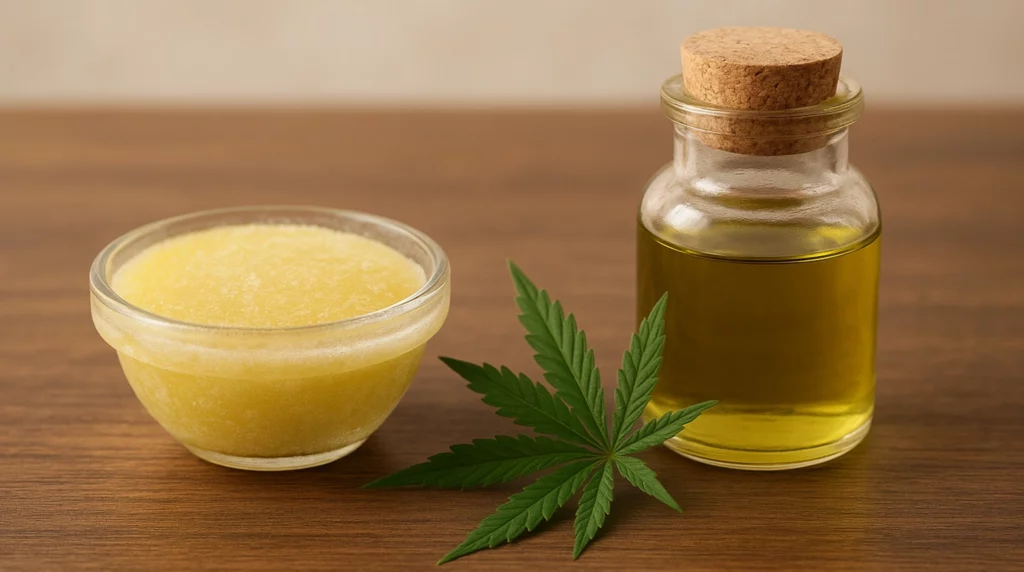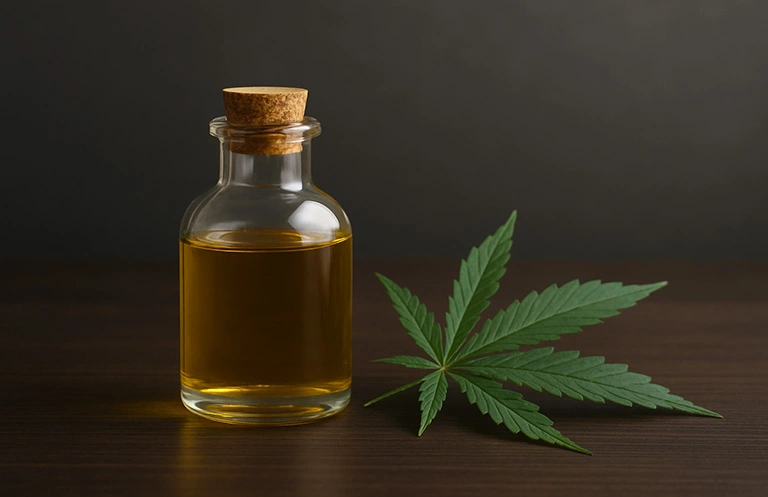TL;DR: If you’re infusing cannabis at home, the oil you choose can make or break your results. So what’s the “Best Oils for Cannabis Infusion”: Coconut and MCT oils lead in potency and bioavailability, while olive oil adds flavor. Avoid processed oils with low saturated fat. This guide breaks it down—what to use, what to skip, and how to do it right.
Not All Oils Are Created Equal
When infusing cannabis, the fat you choose does more than carry cannabinoids — it defines the flavor, texture, potency, and shelf life of your final product. The goal is simple: maximum bioavailability with minimal fuss.
So what’s the best oil for cannabis infusion? Let’s break it down, based on science and user experience.
The Science: Why Fat Matters
THC and CBD are lipophilic — meaning they dissolve and bind best to fats. The more saturated fat, the better the cannabinoid absorption. That’s why some oils outperform others.
Rule of thumb: Higher saturated fat content = stronger infusion potential.
Top Contenders for Cannabis Infusion
1. Coconut Oil (Extra Virgin or Refined)
- Best for: potency, versatility, vegan edibles, topicals
- Saturated Fat: ~82%
- Pros: Solid at room temp, long shelf life, very efficient carrier for THC/CBD
- Cons: Distinct flavor (unless refined), may separate in baked goods
Coconut oil is the reigning champ for home infusions. It’s compatible with capsules, skincare, and edibles. Use the NOIDS Herb Cooker with the Oil function for easy, odor-minimized infusions.
2. Olive Oil (Extra Virgin)
- Best for: savory dishes, dressings, culinary infusions
- Saturated Fat: ~14%
- Pros: Delicious, heart-healthy, pantry staple
- Cons: Lower fat saturation means slightly weaker cannabinoid binding
If taste and tradition matter, olive oil brings elegance to the mix. Just know that you might sacrifice a bit of potency.
3. MCT Oil
- Best for: microdosing, tinctures, keto-friendly diets
- Saturated Fat: ~100% (pure medium-chain triglycerides)
- Pros: Liquid at room temp, long shelf life, great for fast absorption
- Cons: Can cause digestive upset for some; flavorless but oily mouthfeel
MCT is a favorite in the nootropic and wellness crowd. It’s fast-acting and efficient — ideal for precision infusions and everyday supplements.
4. Butter (or Ghee)
- Best for: baked goods, comfort food, traditional edibles
- Saturated Fat: ~51–65%
- Pros: Rich flavor, great texture for baking
- Cons: Shorter shelf life, not vegan
See also: Our CannaButter recipe for full breakdown.
Oils to Avoid
- Canola/Soy/Corn oil: highly processed, low in saturated fat
- Flaxseed oil: low smoke point, degrades quickly
- Mineral or non-food oils: never use these for infusion
What We Use
For versatility and strength, we often recommend:
- Coconut oil for topicals, capsules, and fat-rich recipes
- MCT oil for tinctures and daily microdoses
- Olive oil for dressings and full-spectrum savory infusions
Bonus Tip: Infuse Smart with NOIDS
All these oils work with the NOIDS Herb Cooker, which automates decarb and infusion with precise temp control. Less guesswork, better extraction.
- Use the Oil or CBD Oil function
- Always decarb first
See also: “How to calculate potency” for full breakdown.
Storage Tips
- Store infused oils in a cool, dark place
- Label with strain, potency, and date
- Shelf life: Coconut and MCT oil = up to 6 months; Olive oil = ~3 months
FAQ: What Most People Ask
What’s the absolute best oil for cannabis infusion?
If you want potency and versatility, go with coconut oil or MCT oil.
Can I mix different oils together?
Yes! For example, blend coconut + olive oil for balance of potency and taste.
Does refined coconut oil work as well as virgin?
Yes—refined works fine and has less coconut flavor.
Can I use an oven instead of a machine?
Yes, but machines like NOIDS give you the most consistency and smell reduction.
What happens if I skip decarbing?
Your infusion will have little or no effect. Always decarb first.










